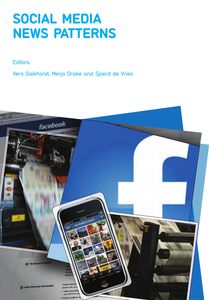Information literacy is essential for the operation of a civic society in which all people may participate (Catts & Lau, 2008). The aim of the Fact Checking Factory (FCF) is to accomplish cooperation between students and local citizens. We aim to create an agenda for local decision-makers with the project objectives of fact-checking local news. http://ecil2018.ilconf.org/#
DOCUMENT

Globalization was supposed to connect people, but instead ended up connecting the powerful. Local news is rapidly disappearing and leaving crucial stories unreported, communities unrepresented and disconnected, a side-effect of digitalization and the ownership concentration in media markets. But local and hyperlocal media play an important role in sustaining robust and resilient regimes of public service. In an age of technological changes and political pressure, niche publications and a renaissance of zines lead the quest for new, sustainable models in publishing.In the second instalment of the special edition Eurozine podcast series, produced by Talk Eastern Europe, Eurozine editor-in-chief Réka Kinga Papp talks media models old and new with Rachael Jolley, editor of Index on Censorship and philosopher Miriam Rasch of the Institute of Network Cultures.
MULTIFILE
Wereldwijd onderzoek: Hoe gebruiken nieuwsmedia social media? Jongeren lezen geen krant meer, ze kijken op hun smartphone die ze altijd bij de hand hebben. Binnen het lectoraat social media en reputatiemanagement van NHL hogeschool te Leeuwarden heeft een groep internationale studenten in 12 landen onderzoek gedaan. Hierbij hebben ze meer dan 150 social media sites bestudeerd van nieuws media. De resultaten maken deel uit van een internationaal onderzoek van NHL Hogeschool en Haaga Helia University. De onderzoeksvraag was: Wat speelt zich af in de nieuwsmedia? Persbureaus kunnen het overzicht gebruiken om hun social media te optimaliseren. En voor ieder die journalistiek een warm hart toedraagt is het interessante informatie over de nieuwsmedia in een overgangssituatie (2nd edition)
DOCUMENT

VIRGiN reveals types of local & regional storytelling techniques that fit Virtual Reality based on research among journalists and professional and user generated VR concepts.Within a context of an already complicated media strategy puzzle, Virtual Reality (VR) has entered the news domain. VR might be a new means to attract and engage audiences with news. However, hardly any tested local and regional VR news productions exist. This makes it unclear how to create local and regional VR news and how to implement this effectively inside the newsrooms. VIRGiN aims to reveal different types of local/regional news and storytelling techniques that are suitable for VR. Based on the creation and testing of newly developed, professional and user generated VR news productions, we want to learn about the benefits and thresholds of using VR as a means to reach and engage audiences with local and regional news stories.Partners:Omroep BrabantBreda VandaagUitgeverij de BodeAPVIS
As media budgets do not increase with the same speed as the rise of complementary media, the right media choice has become more important as well as more difficult. Especially for local and regional news organizations that deal with budget reductions, a decline of youth willing to pay for news and an increase of media that provide free access to ‘news’ pose great challenges. In the context of an already complicated media strategy puzzle, Virtual Reality (VR) has entered the news domain. VR, according to journalists, might be a new means to reach the audience. However, local and regional VR productions almost do not exist, making it unclear how to create local/regional VR news and how to implement this effectively in the newsrooms. VIRGiN reveals types of local/regional stories and storytelling techniques that fit VR based on research among local/regional journalists and editors from Omroep Brabant and Breda Vandaag and their (potential) young audiences. Based on this, two local and regional VR news proof of concepts will be created: One grounded on journalist input, while the other concentrates on user generated VR news. These activities will reveal the ideal local and regional stories and storytelling techniques and best ways to motivate, make use of and share (user generated) VR content. The proof of concepts, together with production and process reports, will provide tangible examples and guidelines for local and regional journalists to learn whether and how to implement VR in their stories. This project is a stepping stone towards a larger (inter)national collaboration on VR news creation.